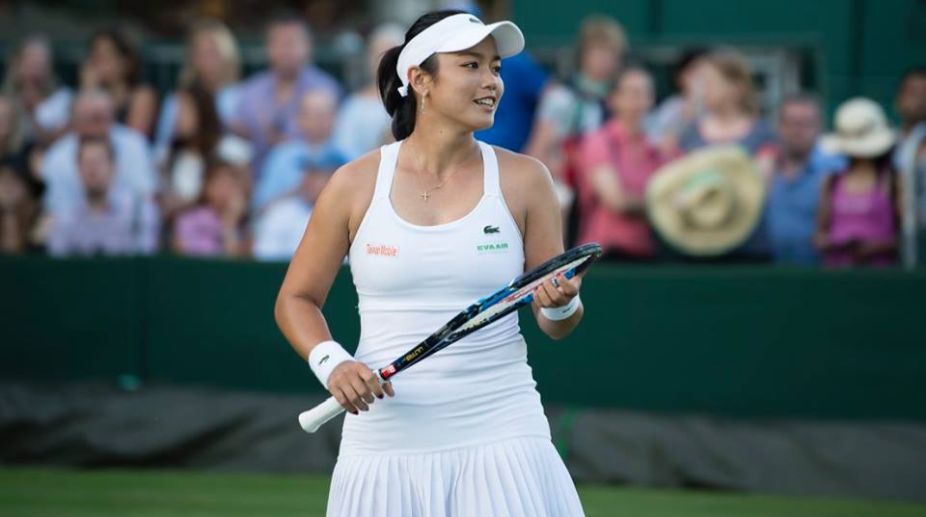Last fortnight Chan Yung-jan became Taiwan’s first tennis player to win a trophy at the U.S. Open and the second ever Grand Slam winner after she and her partner, the legendary Martina Hingis, won the women’s doubles title. With skills compared by Hingis to that of a “ninja warrior”, photogenic and enjoying a warm relationship with the mainstream media, Chan has all the potential for sports superstardom in Taiwan.
Yet instead of being lauded as a “Light of Taiwan” — as Taiwanese high achievers in the international arena are routinely called — for the victory, she is now facing the biggest PR crisis in her life. The day before Chan flew to America for the Open, she pulled out of the mixed doubles semi-finals at the Taipei 2017 Universiade, the biggest sports event Taiwan has ever held, after winning gold in both women’s singles and doubles, citing a physical condition. Her mixed doubles partner, Hsieh Cheng-peng, had to forfeit the match.
Hsieh’s sister, Taiwan’s other Grand Slam doubles champion and former world women’s doubles No. 1 Hsieh Su-wei, slammed Chan on Facebook for abandoning her brother. The post triggered a sea of criticism against Chan, who many began to suspect to have used her physical condition as an excuse to bail out of the Universiade in order to compete in the U.S. Open.
After clinching the U.S. Open title, Chan issued a statement on Sept. 10 apologizing to Hsieh and to Taiwanese sports fans but insisted she did not expect to drop out but was surprised by her physical condition. Instead of cooling down the situation, Chan’s statement seemed to have prompted even more criticism.
After weeks of silence, Hsieh Chengpeng spoke up, accusing Chan of putting her weight to secure her place in the mixed doubles even though she was aware of the potential schedule conflict. He also accused Chan of faking her illness and of asking him to play along with her lies. It is highly unusual for an accomplished Taiwanese athlete such as Chan to face such an onslaught of criticism, even if the public believed she had dropped out on purpose.
The Taiwanese people have long held high regard for their compatriots who do well in international matches. They are seen as national heroes earning much-needed international recognition for Taiwan. The public retained their support for the “Lights of Taiwan” through scandals such as extramarital affairs, performance slumps and even involvement in game rigging.
But one thing the Taiwanese public dislike more than they admire in international winners is bullying, especially when it comes at the expense of the little guy. It is two sides of the same coin. Sports exploits provide an alternative route to global exposure and national pride for the diplomatically challenged Taiwan. The same restriction in the international community is also the reason many in Taiwan hold a special affinity for the underprivileged.
The controversial incident has also become a turning point for the tennis player after which more allegations of similar power-plays by the Chan team have surfaced, tainting her image. Chan’s Universiade controversy has touched a chord with Taiwan’s society.
As backslash over her postU.S. Open statement has shown, winning is no longer the only thing that matters in Taiwan.
The Taiwanese public do not necessarily disagree with Chan’s choice of the U.S. Open over the Universiade; what they are against is the influence peddling allegedly engaged in by the Chan team and what many see as Chan’s unwillingness to give younger players a chance in the Universiade by taking up all the opportunities at the games despite her scheduling difficulties.
(The writer is Executive Editor, The China Post, Taiwan. This is a series of columns on global affairs written by top editors and columnists from members of the Asia News Network and published in newspapers and websites across the region.)










